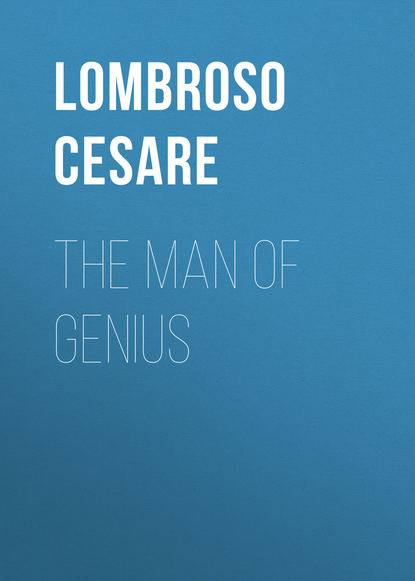По всем вопросам обращайтесь на: info@litportal.ru
(©) 2003-2024.
✖
The Man of Genius
Настройки чтения
Размер шрифта
Высота строк
Поля
442
Du Vin, i. 1880.
443
Schurz, i. 328.
444
Kreisler is, like himself, full of strange ideals, always at war with reality, and ends by becoming insane.
445
“Francesco, inferma, entro le membra inferme
Ho l’anima.”
446
Epistolario, iii. 1.
447
“Mad Nat Lee,” who was for a long time an inmate of Bedlam, minutely describes the insanity of genius in his poems; e. g., in Cæsar Borgia: —
“Like a poor lunatic that makes his moan,
And, for a while, beguiles his lookers-on,
He reasons well. His eyes their wildness lose,
He vows his keepers his wronged sense abuse,
But if you hit the cause that hurts his brain,
Then his teeth gnash, he foams, he shakes his chain.”
See Winslow, Obscure Diseases of the Brain, p. 210, London, 1863. See also the chapter “On the Art of Insanity,” for proofs of a like tendency on the part of insane painters.
448
“Vi son dei giorni che il mio cor vien meno
E il fango mi conquista.”
449
“Venga l’obbrobrio – dell’uomo sobrio;
Venga il disprezzo del genere umano;
Venga l’inferno – del Padre Eterno;
Vi scenderò col mio bicchiere in mano.”
450
See Dilthey, Dichterische Einbildungskraft und Wahnsinn, Leipzig, 1886.
451
Letter from Edmond de Goncourt to Emile Zola (Lettres de Jules de Goncourt, Paris, 1885).
452
Déjerine, De l’Hérédité dans les Maladies, 1886; Ribot, De l’Hérédité, 1878; Ireland, The Blot upon the Brain, 1885.
453
See Part II., pp. 126-132. I must rectify a mistake I have made in not assigning sufficient importance to the influence of race in France. In fact, in revising my studies on a large scale, I find that the departments peopled by the Belgio-Germanic race yield the maximum proportion of geniuses as 40 per cent., while the Celtic departments yielded only 13·5 per cent., and the Iberian 20 per cent.
454
T. Gautier, according to the Goncourts, often declared that he could not – on account of his youth – convince himself that he was really the father of his daughter (Journal des Goncourt, 1888). “La Fontaine was not far removed from a bad man,” says Bourget. “What are we to think of a husband who deserts his young wife and his child, without any motive whatever?” Stendhal (Beyle) hated his father and was hated by him; he always declared his invincible repugnance towards compulsory family affection (Bourget, Essais de Psychologie, p. 310). “I consecrated myself to grief for her,” wrote Chateaubriand of Pauline de Baumont. “ … She had not been dead six months, when her place was filled in my heart” (Ibid.).
455
Revue Littéraire, Aug. 15, 1887, No. 3.
456
Lombroso, Delitti politici, 1890.
457
Correspondance, 1889, p. 538.
458
Feeri, Nuova Antologia, 1889.
459
See Archivio di Psichiatria, vol. ii.; L’Uomo Delinquente, part iii.
460
Encéphale, No. 5, 1887.
461
See the table in Déjerine, op. cit.
462
Mahomet had a strange fondness for his monkey; Richelieu for his squirrel; Crébillon, Helvetius, Bentham, Erskine, for cats – the latter also for a leech. Schopenhauer was very fond of dogs, and named them his heirs; and Byron had a regular menagerie of ten horses, eight dogs, three monkeys, five cats, five peacocks, an eagle, and a bear. Alfieri had a passion for horses. (Smiles, op. cit.)
463





